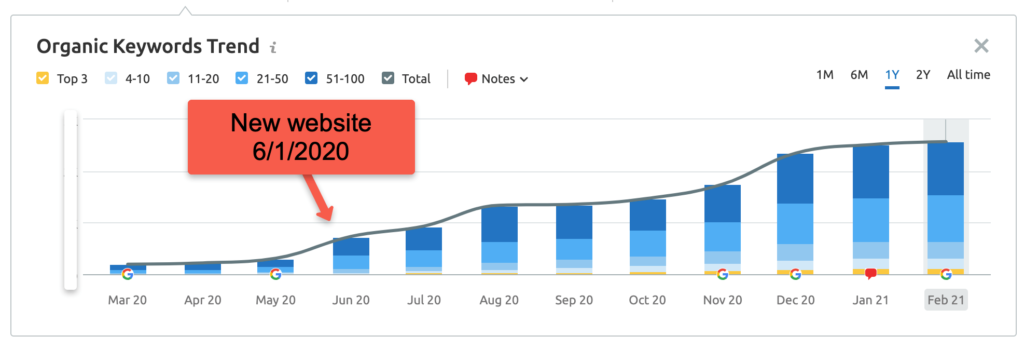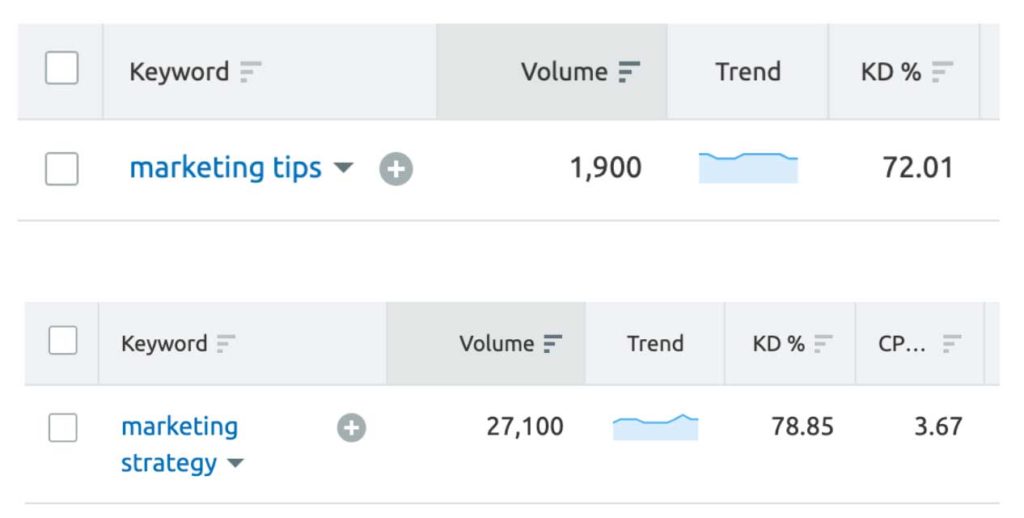Estimated reading time: 11 minutes
By Chad Sands
After I got a haircut one sunny Saturday afternoon when I was a small child, I remember looking up at my mom with big wondrous eyes and saying:
“Mom, when I grow up, I want to work in marketing for a legal tech company.”
Actually, that’s not true.
I never said I wanted to work in legal tech. I never even said I wanted to work in marketing ( I think I probably said I wanted to be a professional bowler).
But, for the past 5 plus years I’ve found myself at 3 different “legal tech” companies. As bankruptcy attorney Michael Hamersky once said to me: “Nobody goes to law school saying they want to be a bankruptcy attorney. I think most people just fall into it, like I did.” You could say the same thing about me — I just fell into the world of legal tech.
And while Tracers works in a number of different verticals — from law enforcement to healthcare — attorneys have used our public and private records database for decades to help them complete their legal research, locate witnesses, perform asset searches, and help with due diligence. So, when I told Jared Correia I wanted to go on his “Legal Toolkit” podcast and share all the dirty little legal tech marketing secrets I’ve learned over the past 5 years, he took the bait. You can listen to the episode here. We ended up talking a lot about my “famous adjacent” career as a musician and in the film/tv industry, and I did get to share some tips on marketing… but I wanted to dig a little deeper.
In this post, I’m going to share some new strategies and tips for marketing your law firm. Truth be told, these ideas could be used by attorneys, doctors, private investigators or tennis coaches, but for the purpose of this exercise (like in the podcast), I’ll tie them back to law firms.
Now, a disclaimer: honestly, these are just a few ideas from a marketing guy.
If you want something more academic, Clio, the preverible elephant in the legal tech room (and Tracers partner) recently did a pretty good post that talks about marketing strategy vs. plans, tactics, KPIs, goals and … well you get the point. So, if that’s the kind of blog post you want, read it here.
Otherwise, stay here and let’s get to my five marketing strategies to grow your business in 2021
1. Build a good great website
You might be saying: “Chad, this tip sucks.” Well, then just scroll to #2. But the truth is, just because you have a mobile responsive website or get 10,000 visitors a month doesn’t mean your website is great (if you do get 10,000 visitors a month – nice! Please keep reading). A great website takes effort and it doesn’t come out of a GoDaddy box, no offense to GoDaddy.
A slow website does not make for a great website. Site speed is a really tough nut to crack but impacts your SEO and user experience. Now, you’re not Amazon, so I’m not going to tell you that improving your website speed by .5 milliseconds will increase your conversions by x10 (because, I don’t think it will). But that doesn’t mean you shouldn’t do a few things to optimize your site. Use GTMetrix and Google Page Speed Insights to test and optimize and keep an eye on it.
I’m not an attorney, so I don’t pretend I’m one and I don’t spend my free time looking up case law or going to the local law library to learn about torts. So when it comes to your website, I would say tread carefully. If you can — hire a professional and just make sure they do some of the things listed below. Or consider “bartering” (that marketing girl out there might want an LLC one day) for services from somebody who knows what they are doing. But if you go it alone, here are some more tips:
- Go with Google. Make sure you have Google Tag Manager, Google Analytics and Google Search Console set up. At the very base level, Google Tag Manager will help you set up and easily manage conversion pixels (helpful if you’re running ads), Google Analytics will tell you who is coming to your website and how they got there, and Google Search Console will tell you how your website is doing in SERP (Search Engine Results Page) with impressions and clicks on keywords.
- Compress and optimize images. Don’t download and use the full-resolution stock image from Unsplash as your homepage hero image. You have to resize them for web and shoot for keeping them under 50kb if you can. Use plugins like SG Optimizer or Imagify to serve .webp image formats, compress PNGs with TinyPNG.com or Sqoosh, and always use alt and title tags.
- Get good hosting. If you are using WordPress (powers 40% of the web) I like SiteGround because they have some decent built in speed enhancement tools, but honestly I like them more because if you buy a 3 year plan they are pretty cheap ($9.99/mo for their GrowBig plan). If you have the extra cash, go with WP Engine and setup WP Rocket plugin to speed things up. Another option is to go with a platform like Webflow. You can do some really clean, cool things with Webflow and their site structure is much better than WordPress, but harder to manage.
- Don’t just let it sit there. A website is not a satellite. You don’t just launch it into the world wide web orbit and get stuff back. You must update it. The best way is to have a blog where you post at least every week, but also be sure to update your other main pages. Google doesn’t like stale web pages.
- If you have the traffic, A/B test. If you do get a good amount of website traffic, use a tool like Google Optimize to A/B test headline copy or images. If you get 30 visits a month, try to get more traffic first.
- Add testimonials and social trust icons to your homepage. You know your local and state bars you are a member of? Add their logos to your homepage. Top Lawyer in Texas? Add the icon to your homepage. Appeared on your local ABC affiliate? Add it to the homepage! Get testimonials from your client (or mom) and add them to your homepage. This builds trust and can help SEO. Speaking of….
- Focus on SEO. See tip #4.
There’s a lot more that goes into creating a great website, but hopefully that will give you some ideas of where to start. Don’t be good, be great.
2. Start advertising with connected TV
Video can be a great tool — on social, on YouTube, and on your great website. But if you do video, do yourself a favor and make sure the audio is clear and the content you are creating is interesting. I think ESPN’s Chris Fowler’s “Tequila Nightcap” Instagram videos are a great example of using just an iPhone but consistently sharing knowledge and perspective in a really interesting, engaging way (that you can hear!). What’s your law firm’s version of this type of series for social media? But when it comes to video, I really want to talk about using connected TV ads if you have more budget and want to do something more polished.
A couple of years ago I worked on a video campaign with Calista Flockhart (the famous TV lawyer). It was odd for me because while I have a lot of film experience (I picked up a dozen eggs for Terry Tate: Office Linebacker’s breakfast as a PA), it was the first time I was on the “client side” of a production. It kind of drove me crazy but that’s for another blog post. The point is, we didn’t have the rights — or the budget — to run the ads on broadcast TV, so we turned to social media and streaming TV.
The great thing about streaming TV is that it’s pretty affordable and gives you a nice “bling factor.” Companies like Choozle and Genius Monkey can get your :30 professionally produced ads (not your iPhone selfie video) onto streaming networks. Even Hulu is now offering self-service ads and once you have your well-produced TV Spot, you can ask your friends who have “cut the cable” if they saw your ad during “Chopped” or “Meet the Press” or “Sunday Night Football.” You can geo-target or even retarget your website visitors via IP address.
If you are one of those firms who have been running those local TV ads during the evening news (or have been saying, “I should do that,”) consider running connected TV/OTT ads.
3. Don’t start a podcast, just go on someone else’s
It seems like everybody and their mom has a podcast these days. But the truth is, it takes a lot of time and effort to produce the content every week and most people, 1) Don’t have that time, and 2) Can’t come close to doing it as well as others do (like the Correia Family History Rump Roast).
There are tons of legal podcasts out there (here’s a list Lawyerist put together). Find out how to get on one of those before telling everyone you know, “Hey, I’m starting a podcast.” You will still get great exposure and can share it on social and put on your website and all the good stuff about having a podcast — you just don’t have to commit to doing it every week.
Or go old school and try to get on the radio. Out in California and streaming online, NPR station KCRW has a great show called “Press Play” with Madeleine Brand. Every Monday she has law professor Jessica Levinson as her “Legal Eagle” guest segment. Can you create an opportunity like this for yourself? Sure you can.
4. Focus on SEO, not PPC
This isn’t a blog post about how to master SEO, and I touched on this in tip #1, but SEO is the way to go. I like to say, “SEO is the blood pressure of your online presence.” Nobody likes to talk about blood pressure; plastic surgery is way sexier (and like PPC gets you a quick fix). But as they say, blood pressure is the silent killer. If you don’t have good SEO, your website will die.
Okay, that’s a little extreme. But the point is, if you plan on being a lawyer for more than a decade, in five years you will be better off investing in SEO now than PPC.
Take Tracers.com for instance. We launched a new website on June 1st, 2020 and focused on SEO and increased keyword rankings. So far it’s worked, and so far, yes, it has helped drive more sales.

SEO has a lot to do with having a great website, but there are also tactical steps you can take to help your SEO and keyword rankings. Again, I say tread lightly because if you find yourself spending 5 hours a week in SEO tools like SEM Rush, Google Search Console, and Ahrefs, then you might consider applying for a marketing job. That said, here are 3 SEO tips:
- Optimize title tags, h1, h2s, and internal links. Okay, so technically that is 4 different things but let’s bucket them all into one and call it “on-page SEO.” Take for example this post. I’ll admit, my h2’s are not the best, but look at the internal links I have at the start of this post. Also, I could have called this blog post “5 Marketing Tips for 2021” but instead I called it “5 Marketing Strategy Tips for 2021.” Why? Because “marketing strategy” has about 25,000 more in keyword search volume.
- Get (or buy) backlinks. Backlinks matter. Backlinks on anchor text keywords matter more. Backlinks coming back to your website from high ranking websites matter even more. If you get a backlink on the keyword “best family law attorney” from your neighbor’s blog that gets 20 visitors a month, honestly it won’t matter. If you get a backlink on that keyword from LegalZoom (that has a domain authority score of 66) or hls.harvard.edu, it matters.

5. Don’t forget at the end of the day, you’re a lawyer
If you’re a writer, obviously you can’t write for eight hours a day (you have to drink for at least 6!). Joking aside, don’t forget at the end of the day you are a lawyer and should do lawyerly things.
A few years ago I worked in marketing for a real estate company and I think the same thing applies to real estate agents. You can’t be showing houses, writing contracts, and having client meetings for 40 hours a week. Part of being a good real estate agent is networking and well, putting yourself in the position to tell people you are a real estate agent. It’s a “people” business. Same with lawyers. If I need an estate planning attorney, I have a lot of choices, which means I’ll probably pick someone I like and want to work with. If I’m charged with murder, it might be a little different, but you get the point.
Go play in a tennis interclub league. Go golfing and play in the member-guest tournament. Like to hunt? Go hunting or fishing with people who like the outdoors. Like to drink? Well, I guess go drinking with people. Put yourself in the place where others (strangers even) ask you what you do and you can say, “I’m an attorney.”
Chad Sands, VP of Marketing, brings a diverse marketing skill set to Tracers after previously working at two prominent legal practice management software companies. A skilled collaborator and self-proclaimed “art dog,” he focuses on demand generation with experience and certifications in marketing operations, PPC, SEO, graphic design, video and web design. He earned a BA in Film Production from University of Southern California and lives in Santa Barbara and Los Angeles, CA. In his free time, you will find him on the tennis court or spending time with his wife and their two “Hemingway” cats.


1 thought on “5 Marketing Strategy Tips”
Comments are closed.